In software development, writing clean, maintainable code is crucial for the long-term success of any project. However, even experienced developers can inadvertently introduce “code smells” — subtle indicators that something may be wrong with your code.
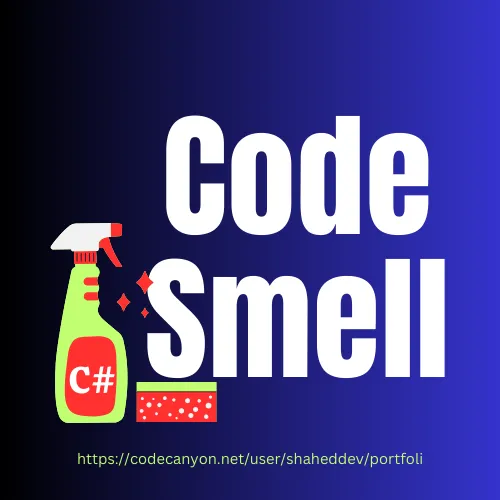
In C#, these code smells can manifest as long methods, large classes, or overly complex logic, among other issues. Recognizing these smells early and knowing how to address them is key to ensuring that your code remains robust, readable, and efficient. In this blog post, we’ll explore some of the most common C# code smells and provide practical solutions to fix them.
Here are some common C# code smells and how to fix them:
#1 Long methods
• Smell: Methods that are too long can be hard to understand and maintain.
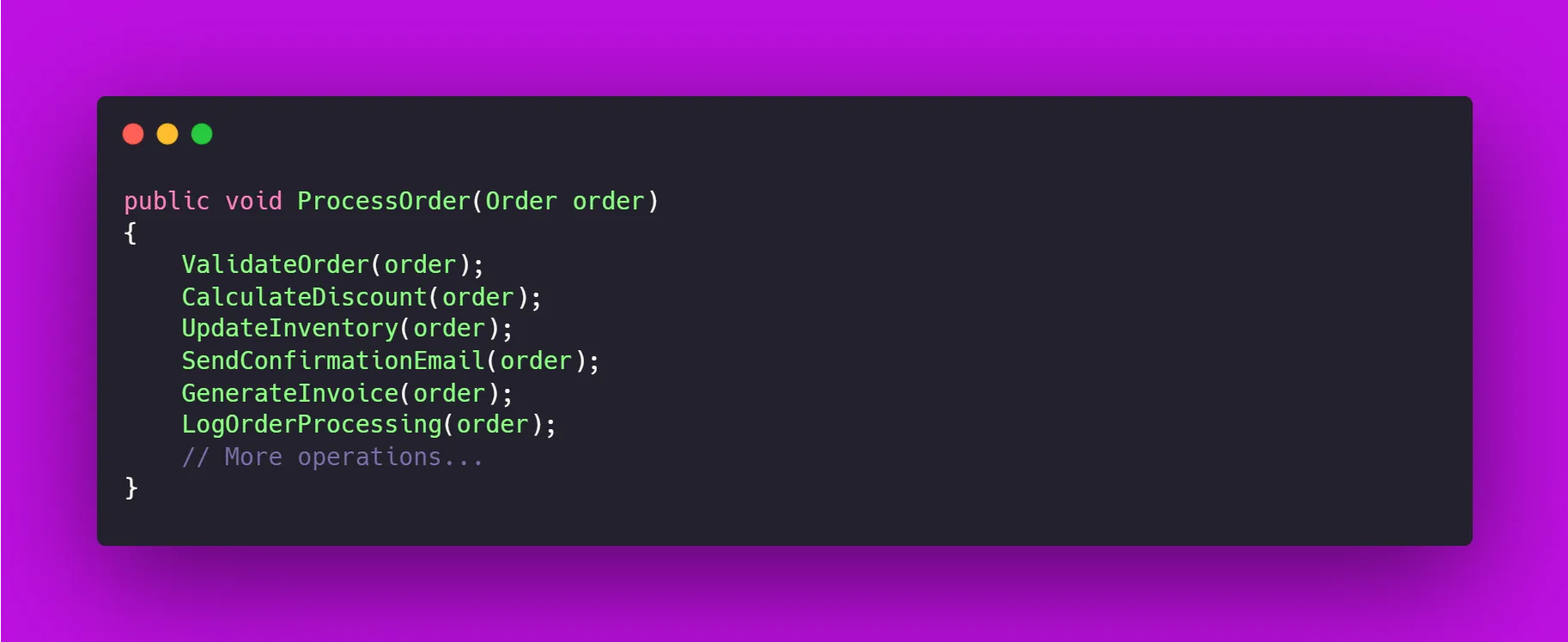
• Fix: Break down long methods into smaller, focused methods that perform specific tasks. Use meaningful names for these methods.
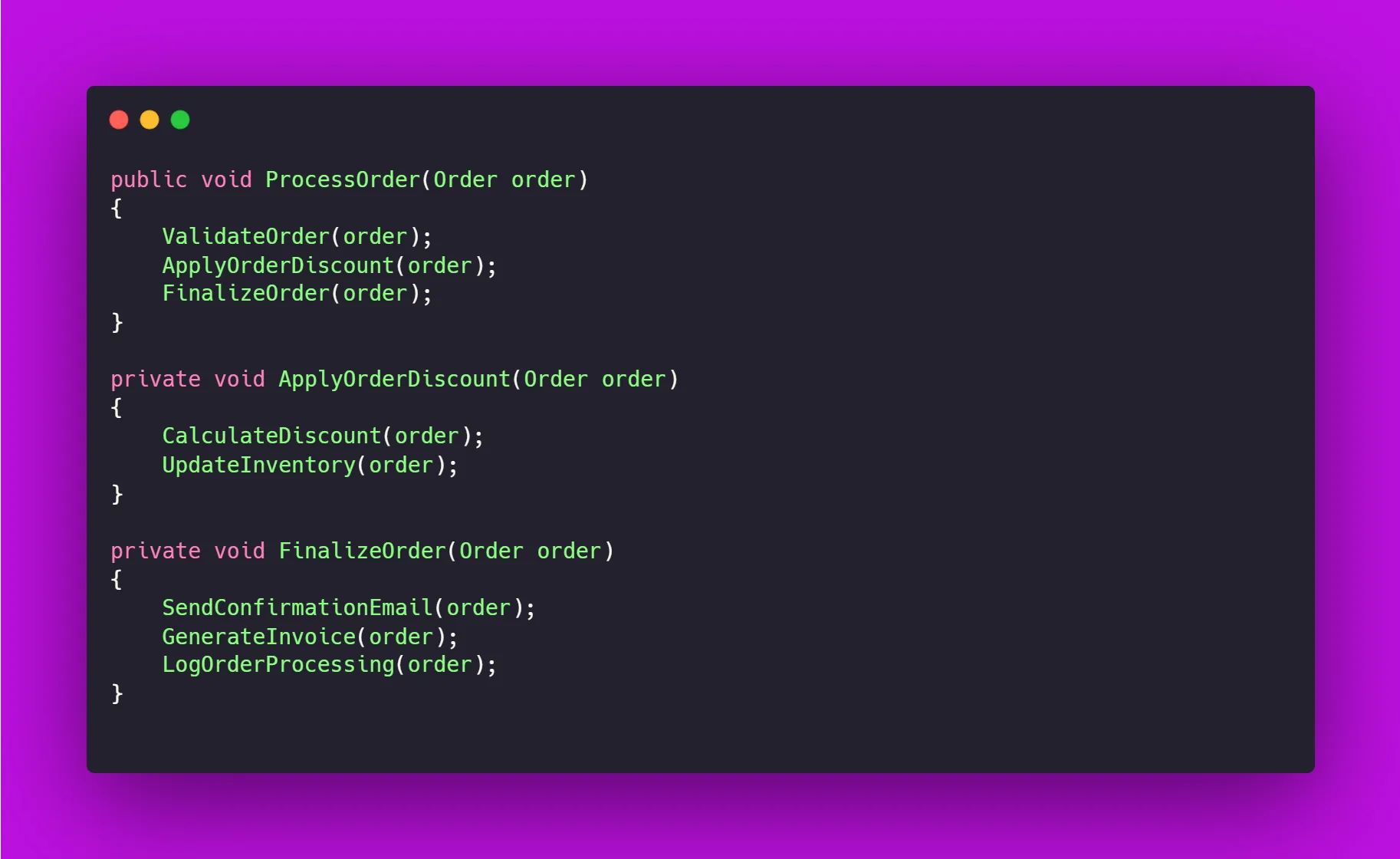
#2 Large classes
• Smell: Classes with too many responsibilities violate the Single Responsibility Principle (SRP).
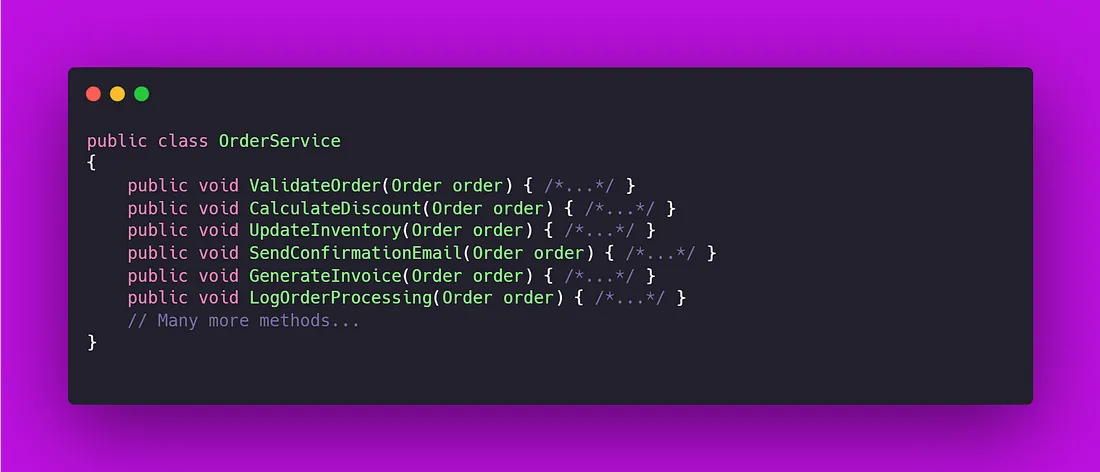
• Fix: Refactor large classes into smaller classes, each responsible for a single aspect of functionality. Use composition or inheritance where appropriate.
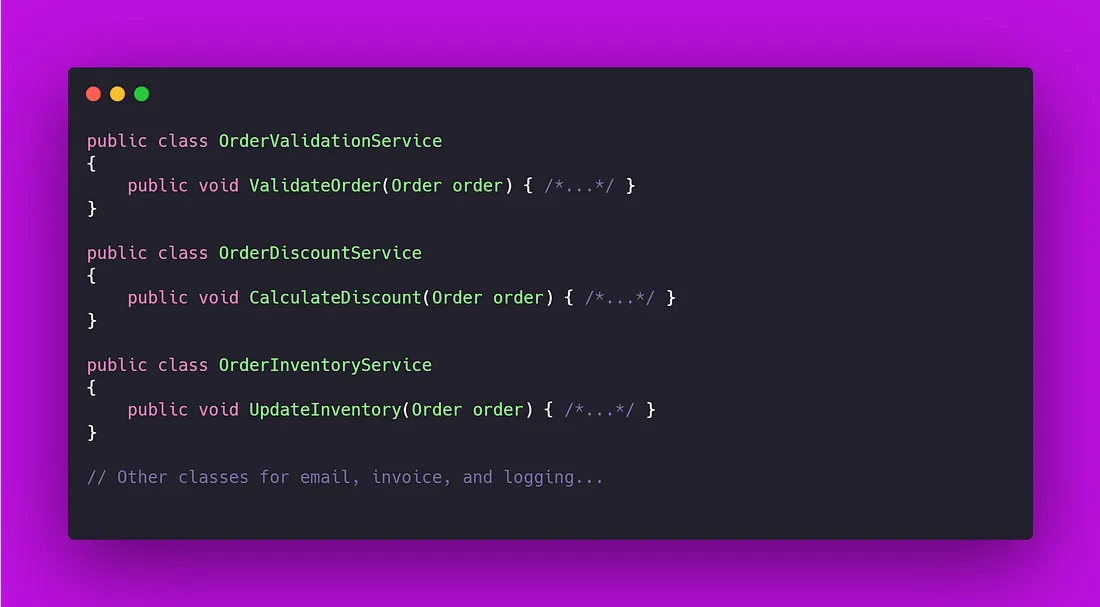
#3 Primitive obsession
• Smell: Overuse of primitive data types (int, string, etc.) instead of creating custom classes.

• Fix: Introduce domain-specific classes to encapsulate related data and behavior. For example, use Email class instead of string for email addresses.
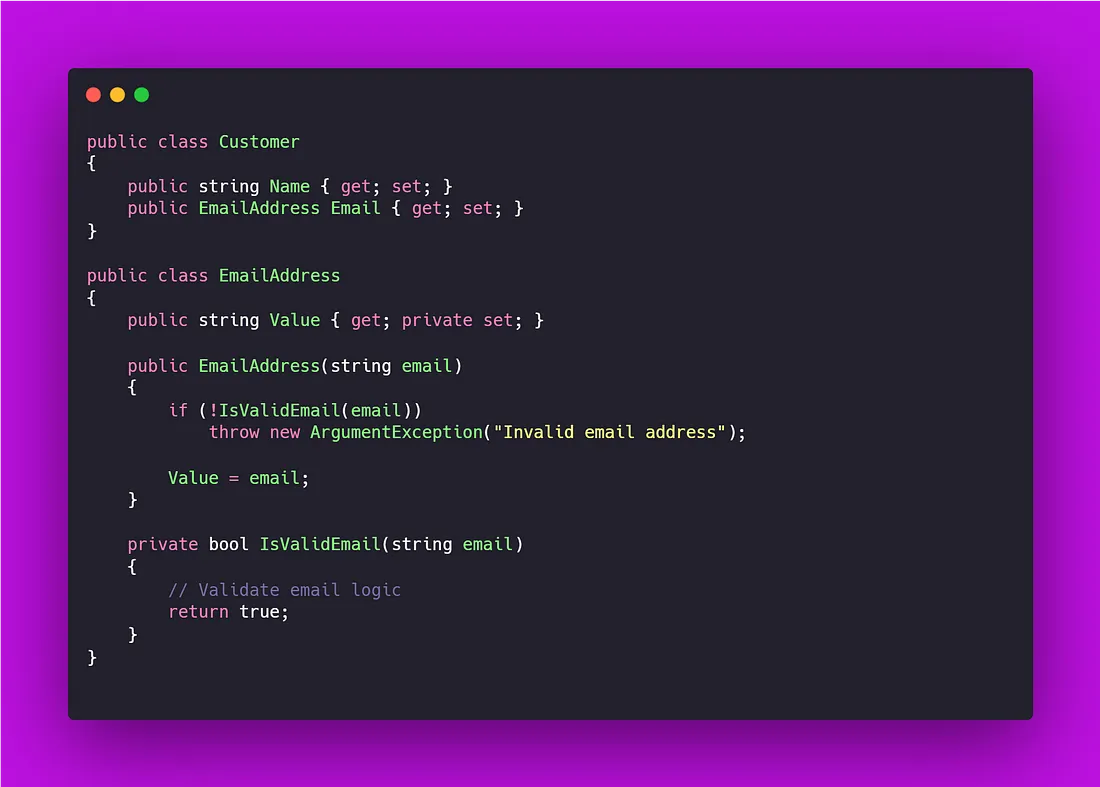
#4 Nested conditionals
• Smell: Deeply nested if statements or ternary operators make code hard to read and maintain.
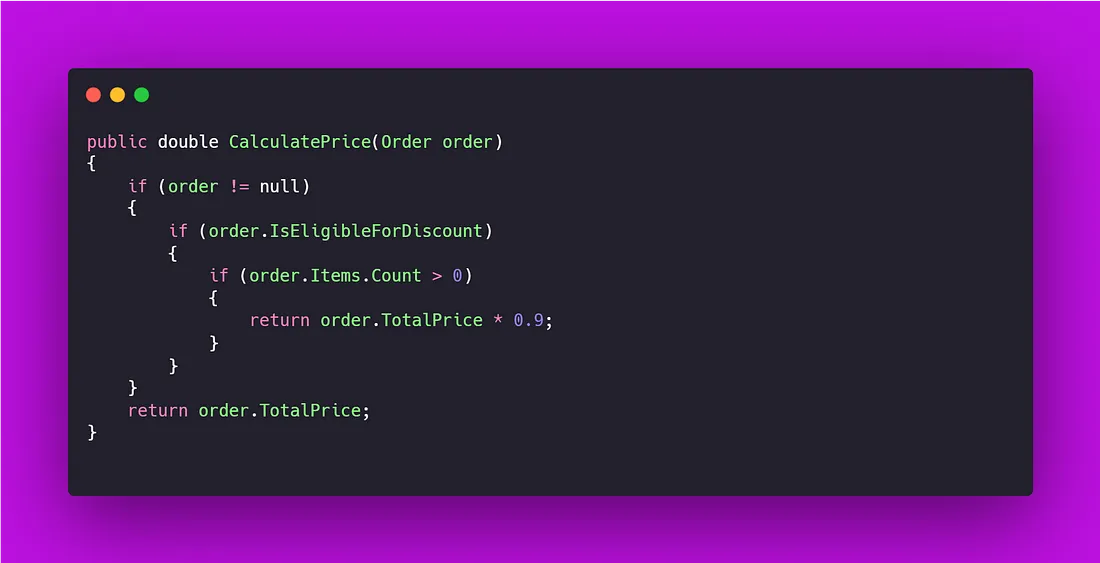
• Fix: Refactor nested conditionals into separate methods or use guard clauses to handle special cases early. Consider using design patterns like Strategy or State if appropriate.
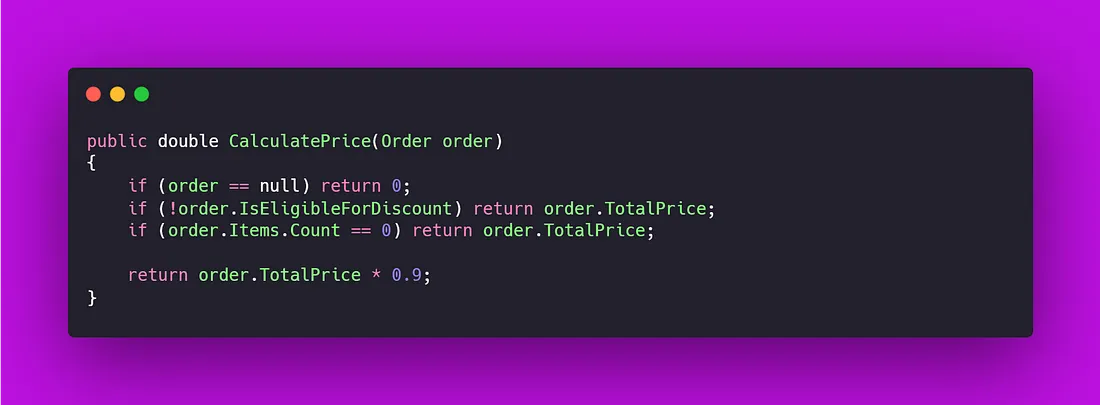
#5 Code duplication
• Smell: Repeated blocks of code (copy-paste programming) lead to maintenance issues.
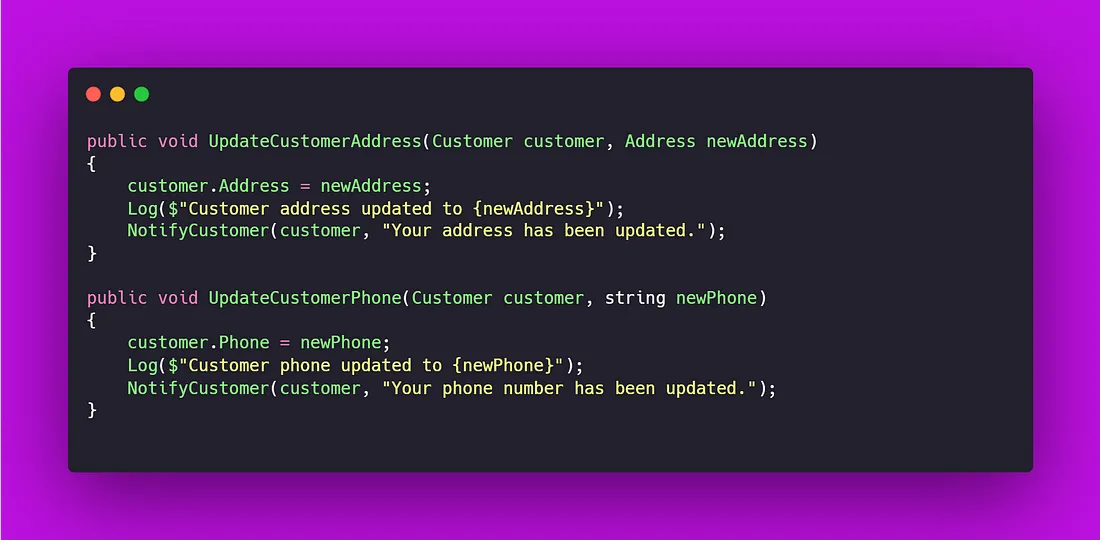
• Fix: Extract duplicated code into methods or helper classes. Consolidate common functionality to reduce redundancy and ensure consistency.
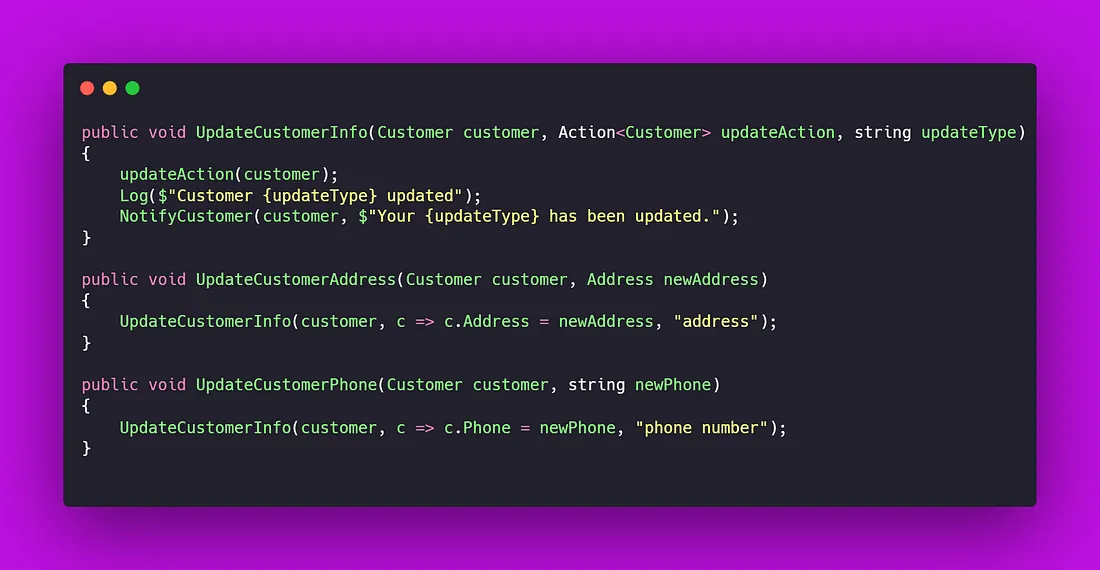
#6 Mutable state
• Smell: Classes with mutable state shared across multiple methods or classes.
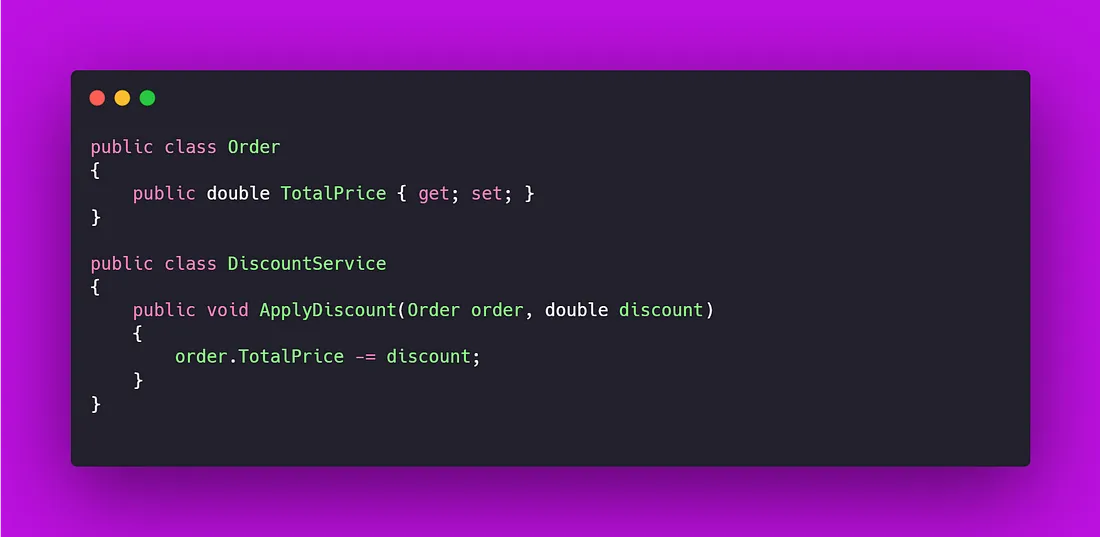
• Problem: The Order class has a mutable state because its TotalPrice property can be changed directly, which can lead to unexpected bugs if modified from different parts of the code.
• Fix: Prefer immutability where possible. Use readonly fields, const for constants, and avoid mutable state in shared contexts. Consider using immutable data structures or objects.
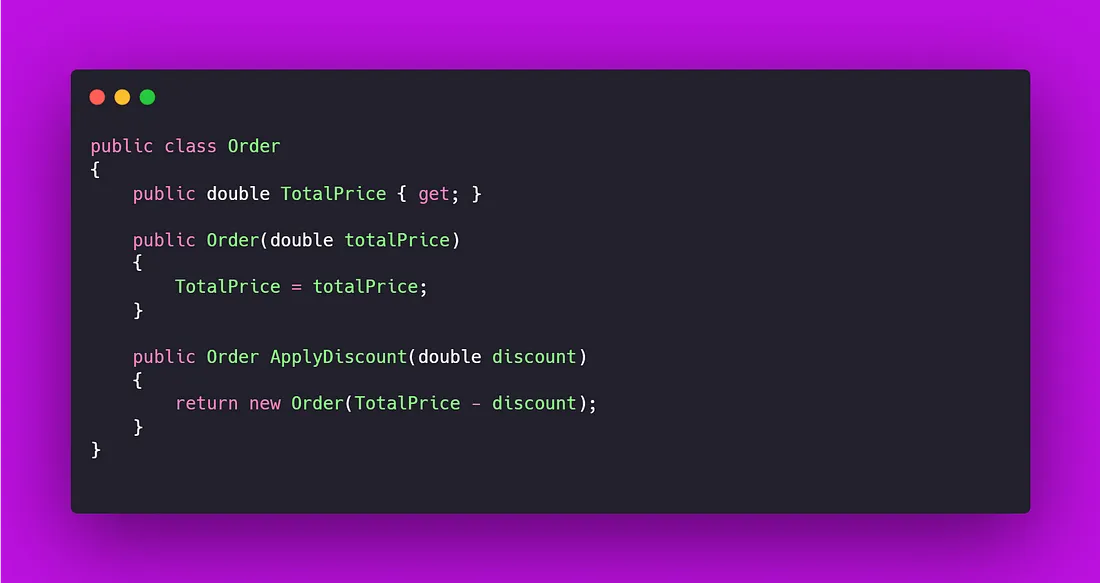
• Explanation: The Order class is now immutable, meaning once an Order object is created, its TotalPrice cannot be changed. Instead of modifying the existing object, the ApplyDiscount method returns a new Order instance with the updated price. This approach avoids side effects and makes the code easier to reason about.
#7 Lack of error handling
• Smell: Methods that don’t handle exceptions or provide meaningful error messages.

• Fix: Implement proper error handling using try-catch blocks for expected exceptions. Log errors with detailed messages to aid debugging and inform users about failures.
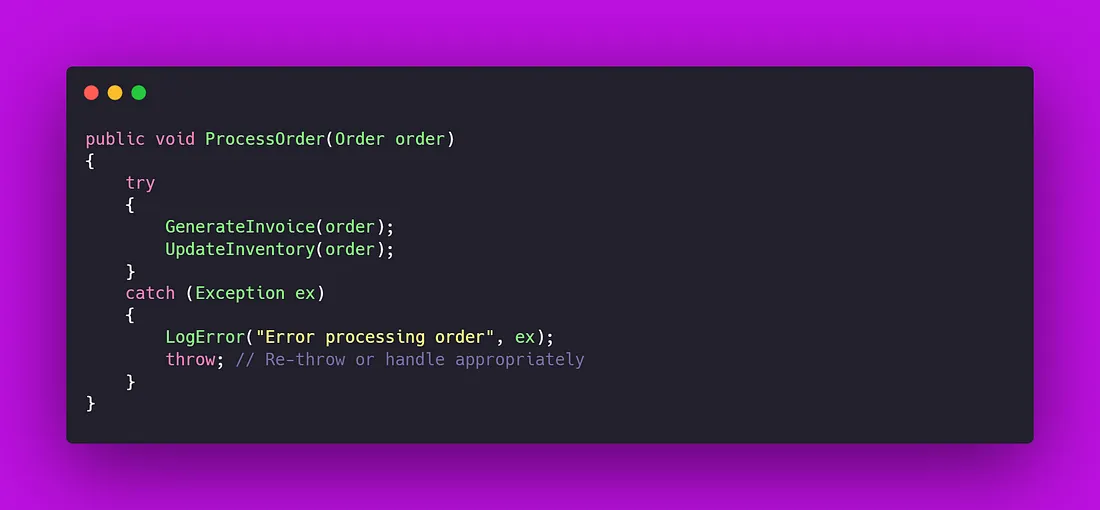
#8 Inconsistent naming conventions
• Smell: Methods, variables, or classes that do not follow consistent naming conventions.

• Fix: Adopt a naming convention (like PascalCase for classes and methods, camelCase for variables) and apply it consistently throughout the codebase. Use meaningful and descriptive names.

#9 Poor testability
• Smell: Code that is difficult to test due to tight coupling or lack of interfaces.
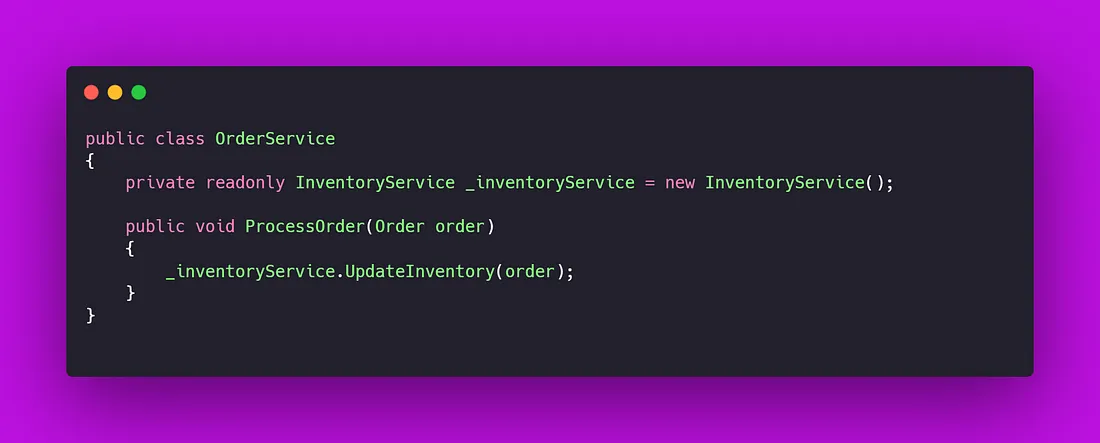
• Fix: Use dependency injection (DI) to decouple dependencies. Design classes and methods to be testable by mocking dependencies where needed. Apply principles of SOLID design.
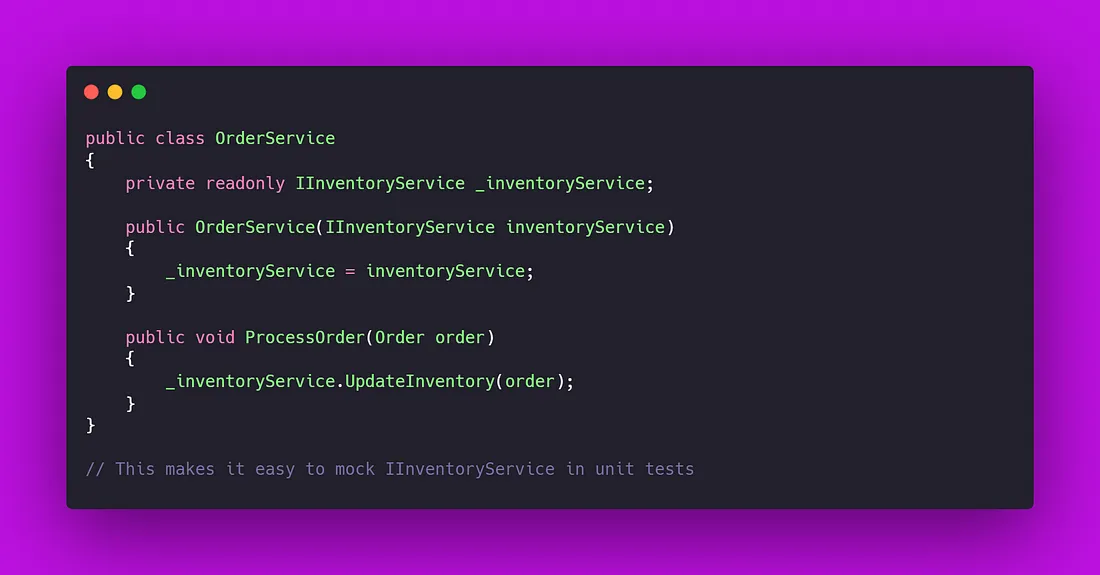
#10 Overly complex expressions
• Smell: Complex logical or arithmetic expressions that are hard to understand at first glance.

• Fix: Break down complex expressions into simpler, more readable parts. Use intermediate variables or methods to clarify intent. Aim for code that is self-explanatory.
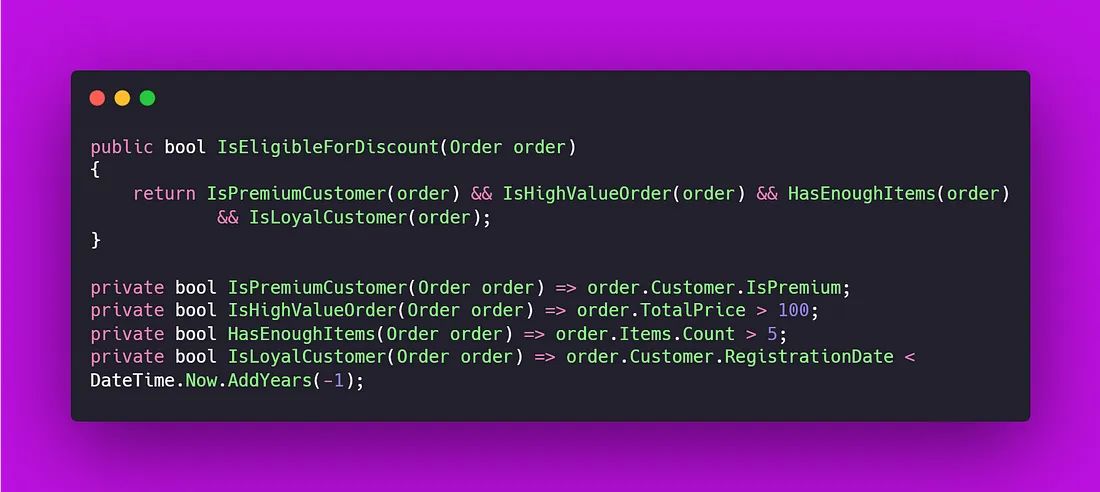
In software development, identifying and addressing code smells early can significantly improve the quality and maintainability of your codebase. By understanding common C# code smells like mutable state, long methods, and primitive obsession, and knowing how to fix them, you can write cleaner, more efficient code that stands the test of time. Regularly reviewing your code and refactoring when necessary will not only make your codebase more robust but also make it easier to extend and maintain. Keep these best practices in mind, and you’ll be well on your way to becoming a more effective and disciplined C# developer.